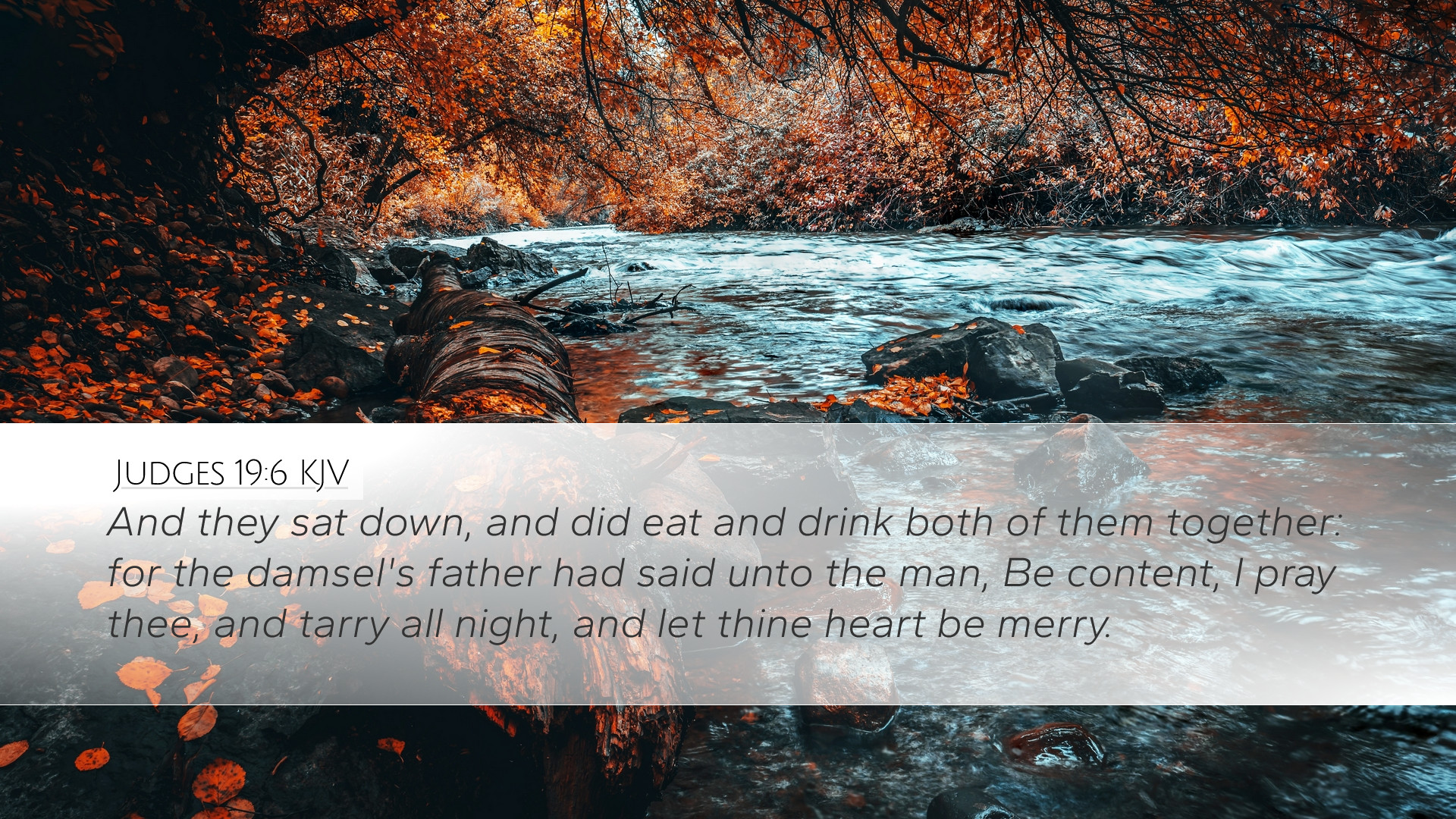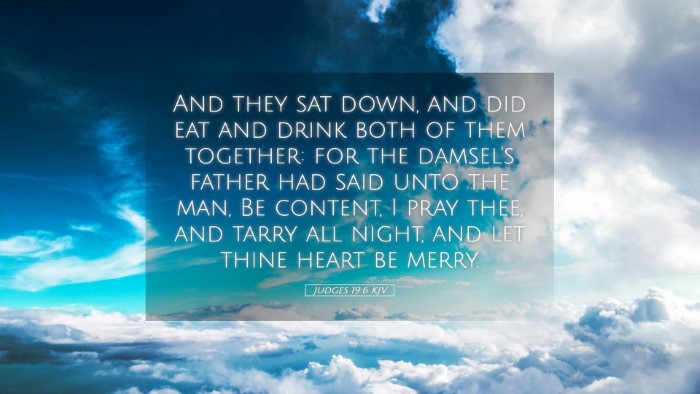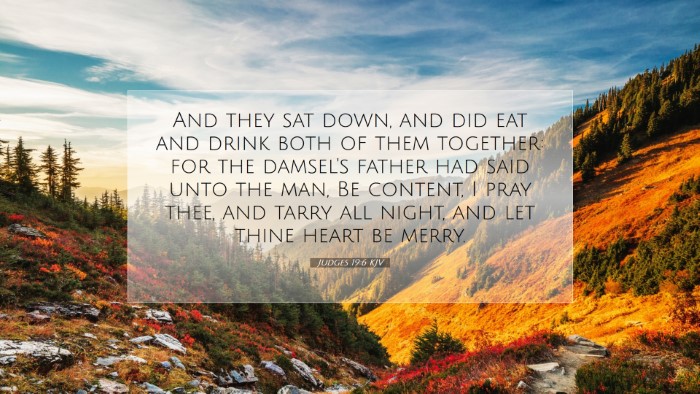Commentary on Judges 19:6
Introduction
The passage of Judges 19:6 presents a profound narrative that transcends mere historical account, delving deeply into the moral and social fabric of Israelite society. The content below synthesizes insights from renowned public domain commentaries by Matthew Henry, Albert Barnes, and Adam Clarke, aiming to offer meaningful guidance to pastors, students, theologians, and Bible scholars.
Verse Examination
Judges 19:6 states, "And they sat down, and did eat and drink both of them together: for the damsel's father had said unto the man, Be content, I pray thee, and tarry all night, and let thine heart be merry."
Contextual Overview
This verse is nestled within a larger narrative depicting the journey of a Levite and his concubine. The events occur during a tumultuous period in Israel's history, characterized by moral decay and social chaos, often summarized as a time when "every man did what was right in his own eyes" (Judges 21:25). The interaction depicted in Judges 19:6 between the Levite and the father of the concubine highlights themes of hospitality, cultural customs, and the significance of companionship.
Insights from Matthew Henry
Matthew Henry emphasizes the hospitality shown by the father of the damsel. In the ancient Near East, hospitality was a cornerstone of societal interaction. Henry notes:
- The father’s insistence on his guest staying longer reflects the cultural obligation to provide for and protect travelers.
- The phrase “let thine heart be merry” denotes the importance of joy and community fellowship that meals often facilitate.
Insights from Albert Barnes
Albert Barnes provides a detailed analysis of the social dynamics at play. He points out:
- Barnes elaborates that the Levite's reluctance to leave showcases a tension between the desire for home and safety versus the urgency of travel. The father’s hosting symbolizes security amidst the chaotic world surrounding them.
- The communal aspect of sharing a meal is highlighted as a significant way to build relationships and foster peace among individuals.
Insights from Adam Clarke
Adam Clarke offers his perspective on the religious implications of the passage. He notes:
- Clarke underscores that the Levite's actions and decisions reflect a deviation from God’s laws, suggesting that the importance of societal customs sometimes overshadows divine expectations.
- The incident serves as a precursor to the distressing events to come, showcasing the moral decline that characterizes the era of the Judges.
Moral and Theological Reflections
From the combined insights of these commentators, several theological implications emerge:
- The Value of Hospitality: The emphasis on goodwill and hospitality reminds believers of the importance of welcoming those in need, a principle echoed in the New Testament (Matthew 25:35).
- Community and Relationships: The act of breaking bread together signifies deeper social and emotional connections, reflecting how fellowship can nurture community ties.
- The Tension of Societal Norms versus Divine Mandate: The Levite's journey signifies a broader narrative concerning the balance between adhering to cultural practices and yielding to divine commandments.
Conclusion
Judges 19:6, through its intricate interactions, serves as a powerful reminder of the moral stakes within human relationships, the weight of cultural norms, and the persistent call to uphold hospitality and kindness. As we reflect on this verse, it becomes essential for pastors and theologians to guide their congregations in understanding the significance behind each narrative detail while encouraging them to live out these principles in their daily lives.


